Overview
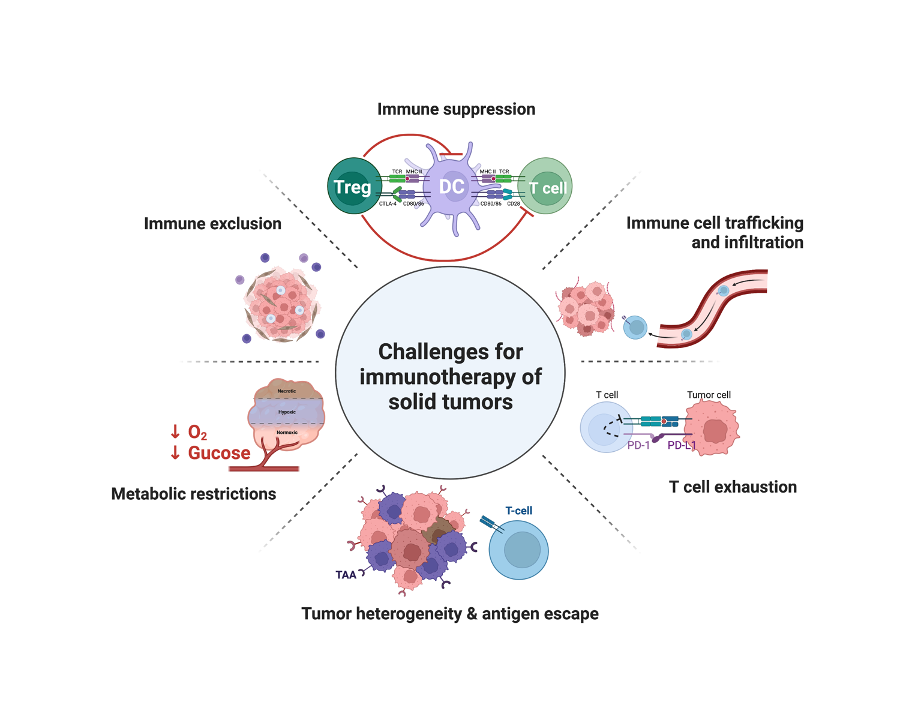
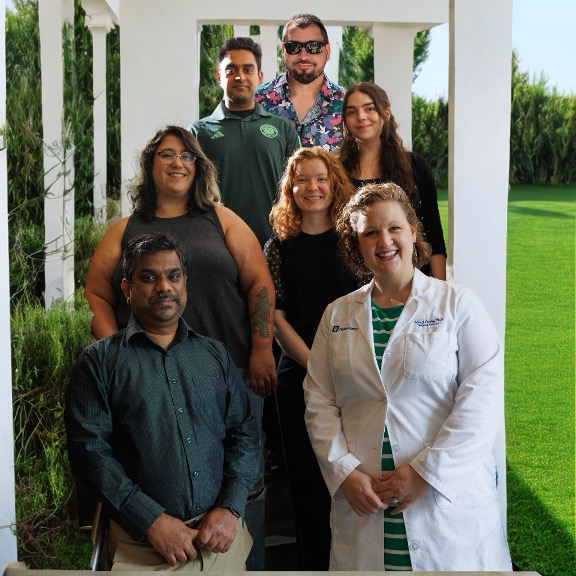
The Tumor Immune Microenvironment lab, under the direction of Dr. Erika Crosby, is broadly focused on leveraging multiomic, high dimensional approaches to understand and modify the immune microenvironment present in primary and metastatic tumor sites. Our lab is translationally focused and sits at the intersection of basic and clinical research where we use mouse models and clinical specimens in concert to ask and answer vital biological questions.
Intratumoral Therapy
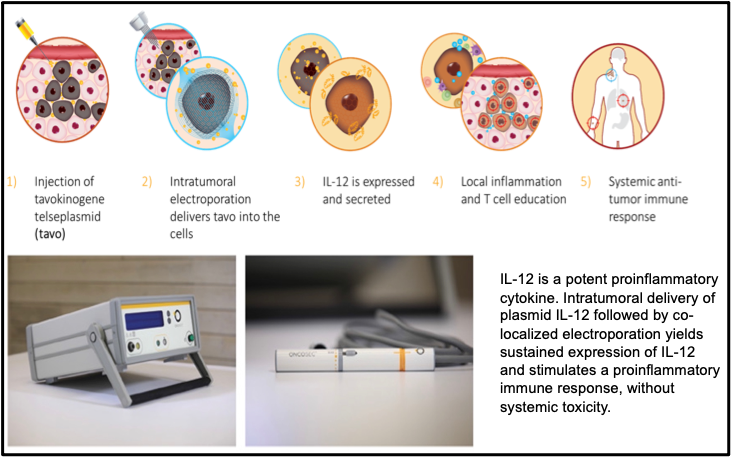
There are many barriers to the treatment of solid tumors, including the physical barriers within the tumor itself. Intratumoral therapy allows for the injection of an immunotherapeutic agent directly into the tumor, bypassing the physical barrier and decreasing systemic immune toxicities.
Funded projects in the lab are ongoing to follow up on our published work (https://aacrjournals.org/clincancerres/article/27/9/2481/672156/Intratumoral-Plasmid-IL12-Expands-CD8-T-Cells-and) exploring the use of intratumoral plasmid IL-12 followed by electroporation.
Development of New Mouse Models
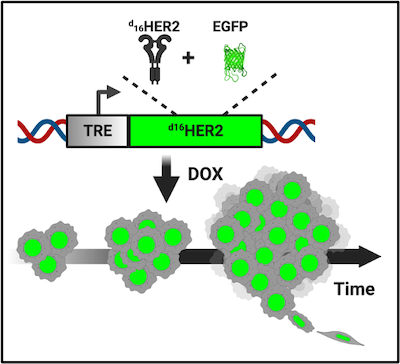
Another focus in the lab is the development and use of mouse models that can better approximate the intact tumor immune microenvironment found in patients. To that end, we rely on a combination of more traditional implantable tumor models and novel genetically engineered mouse (GEM) models that develop spontaneous, oncogene driven cancer. Our GEM models allow for the study the full spectrum of tumor development and impact that immunotherapies can have in the treatment of these tumors. We have several funded and pilot projects to develop and test models of metastasis to both the bone and the liver in mice.
The Cutting Edge of Spacial Multiomics
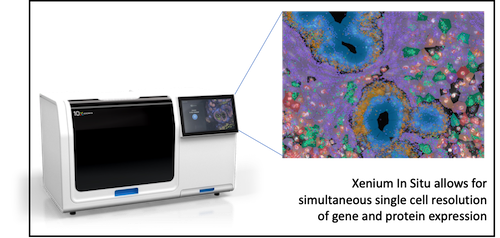
Up until now, we have relied on dissociated tissue analyzed by conventional and spectral flow cytometry, mass cytometry, and single cell RNA sequencing. Coming in Spring 2023, we will now be able to pair these powerful analyses with single cell resolution spatial information. One of the first 10x Genomics Xenium In Situ imaging platforms (https://www.10xgenomics.com/platforms/xenium) will be housed in our lab, allowing for unprecedented throughput and plexity of single cell spatial information. We will be rolling out both mouse and human analyses of breast tumors, pancreatic tumors, and pre- and post-metastatic livers to pair functional and spatial analysis of immune cell infiltration. This technology will be another tool in our lab to perform powerful immune monitoring of clinical samples and deep mechanistic analysis of model system samples.
The Premetastatic Liver in Pancreatic Cancer
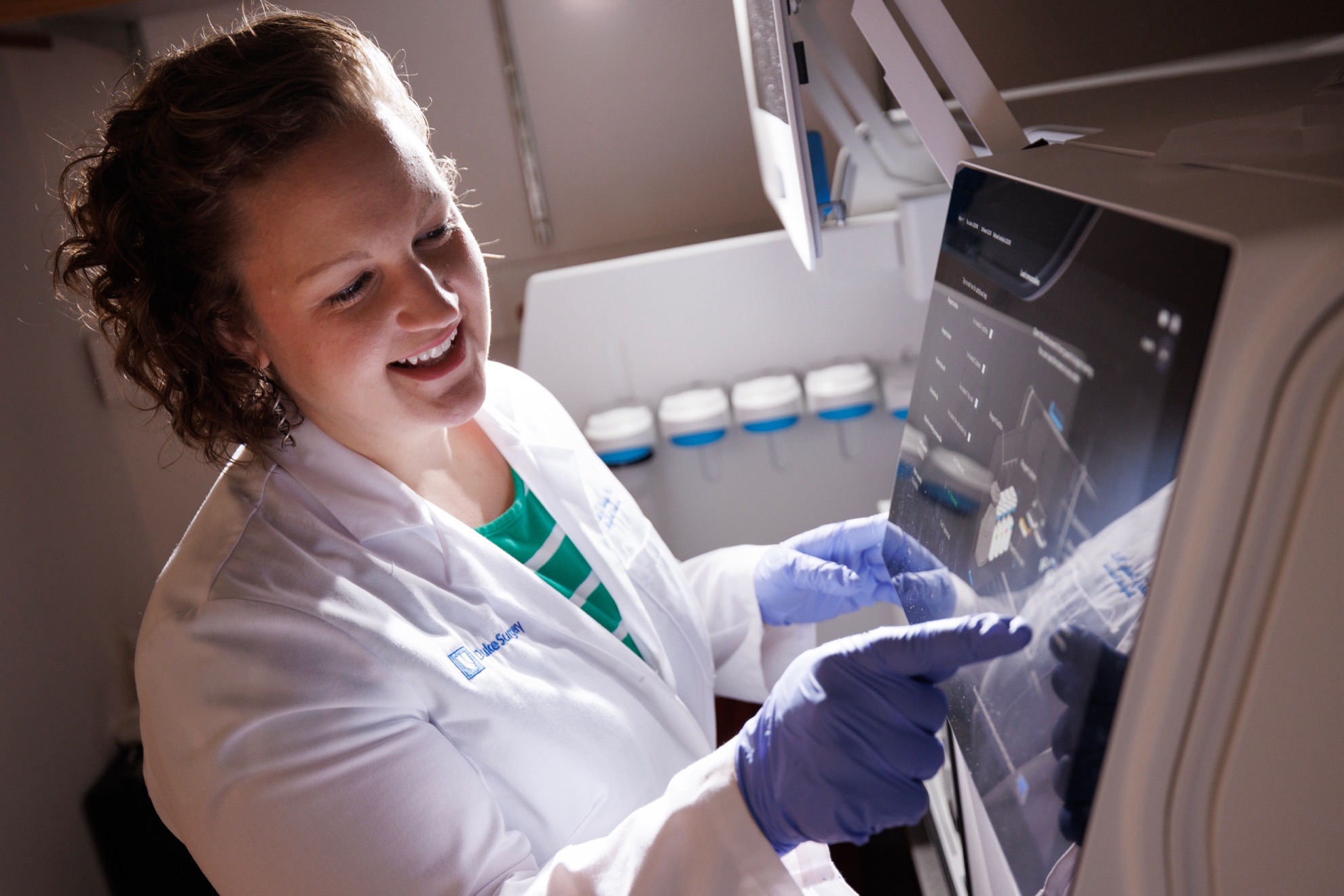
As part of an exciting collaboration with Drs. Daniel Nussbaum and Peter Allen we are exploring the immune microenvironment in the liver of patients with early pancreatic cancer. Comparisons include looking at paired circulating immune, primary tumor, and pre-metastatic liver immune cells using both single-cell RNAsequencing and Xenium spatial analysis. Ongoing questions span investigating tumor reactive T cell frequencies and function, immune dysfunction specific to the liver of pancreatic cancer patients, and the impact of intrahepatic chemo on immune function and metastatic spread.
Lab Members
The Tumor Immune Microenvironment Laboratory is comprised of the following team members:
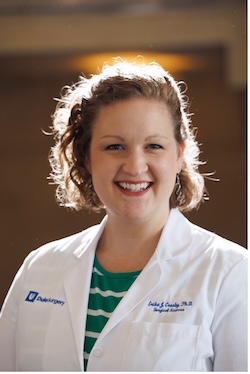
I grew up in Pennsylvania and went to undergrad at Bucknell before doing my PhD at UPenn. I came to Duke in 2014 to do a postdoc and it has been an amazing place to both train and start my own lab. At home, I have a 2 year old and a 5 year old who just started Kindergarten and a rescued Anatolian shepherd/great pyr mix who just turned 2. I love to bake and am very much looking forward to getting a good night’s again someday…
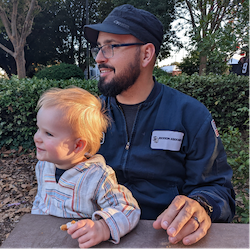
I joined Duke in 2017 to assist Dr. Crosby as a Lab Research Analyst/Technician. Prior to that, I worked back in my home state of Nebraska for an ISO certified company making hematology (and other bodily fluid) controls, and before that in an academic setting doing bird research.
In short, I have many varied years of experience working in a lab environment. Outside of work I try to keep up with my son who (at the time of writing this bio) is 1.5 years old. As such, I currently don’t have any free time or hobbies. Perhaps I may again when he is older. I love to cook and eat, most often you will hear me discussing food.
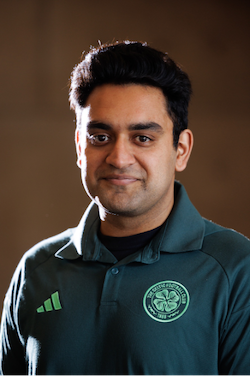
My ultimate career goal is to pursue basic science research with a strong translational perspective. I earned my Bachelors of Technology degree in Biotechnology at the Vellore Institute of Technology, India.
In the fall of 2012 I continued my education in the Master’s in Biotechnology program at the University of Pennsylvania. As a part of my Master’s curriculum I did an independent study in the lab of Dr Wei Tong at the Children’s Hospital of Philadelphia. My study was entitled the “Regulation of Hematopoietic Stem Cells (HSCs) by Lnk adaptor protein”. I then joined the lab of Dr Cecilia Lo at the University of Pittsburgh as a Research Technician to bolster my research credentials. I worked on “The Role of Sonic Hedgehog signaling in fibroblasts of human patients with congenital heart disease” as my primary project along with carrying out other lab duties.
Following this, I successfully completed my Doctoral degree in Immunology from the MD Anderson Cancer Center UTHealth Graduate School of Biomedical Sciences in the laboratory of Dr Eugenie Kleinerman, MD. My project focused on the role of neutrophils and neutrophil elastase in doxorubicin-induced cardiotoxicity.
I am currently a Postdoctoral Researcher, with Dr Hartman and Dr Crosby as co-mentors, having joined the lab in January 2023. I am excited to enhance my knowledge on cancer immunology and immunotherapy through my projects here and build my research career towards my goal of becoming an independent research scientist. Outside of the lab I am an avid sports fan and I also participate in weekly bar trivia contests.
My research interests are in better understanding the tumor microenvironment and the complex array of tumor-immune cell interactions that contribute to cancer onset and progression.
I earned my bachelor’s degrees in biology (B.S.) and history (B.A) from Duke University in 2018 where I also worked in the lab of Dr. Xinnian Dong as an undergraduate. In 2024, I completed my PhD in Cell & Molecular Biology from the University of Texas at Austin. While at UT Austin, I completed my dissertation research in the lab of Dr. Lauren Ehrlich, a professor of Immunology, under whose mentorship my projects focused on understanding the pro-tumor role of myeloid cells in the context of T-cell acute lymphoblastic leukemia (T‑ALL). In particular, my research focused on identifying pro-leukemia myeloid support as an integrin-dependent cell-cell interaction, and on determining the specific role of myeloid support in the context of CNS-infiltrative leukemia.
I am currently a postdoctoral associate under the mentorship of Dr. Crosby, having joined her lab in February 2025. My research aims to utilize techniques such as single-cell RNA sequencing, spatial transcriptomics, and flow cytometry, among others, to better understand the complex immune landscapes of breast and pancreatic cancer.
Outside of my research, I’m an avid distance runner who is currently trying to run each of the major city marathons, and I’m also a former collegiate quizbowl player at Duke and Texas who still enjoys regular trivia competitions.
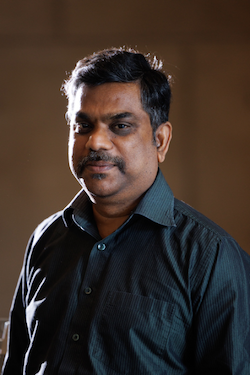
He completed his Ph.D. in the field of Image processing (2008) at Anna University, India and joined as a postdoctoral fellow at MRC UCT Imaging center, Cape town, South Africa. He spent four years working with MRI image data and developed shape analysis pipeline.
In 2012 he joined Oncomark Ltd., specialized in Histopathological image analysis and supported several FP7 projects. During his presence he assisted in setting up Digital pathology Pipeline at Oncomark. Dr. Jesu joined molecular pathology group at AstraZeneca, Cambridge, United Kingdom in 2015 and supported image analysis project and developed his own deep learning pipeline to analyze histopathology images. In 2018, he Joined City of Hope, Duarte, California, in the Population Facing research core as Staff scientist and supported digital pathology initiative though his core.
Dr. Jesu has experience with commercial image analysis software include Aperio, Definiens, Halo, VisioPharm and Image management software such as Eslide manager and Pathcore. Dr. Jesu’s expertise is in the area of Image processing, Digital Pathology, Deep Learning, Software development and Data analysis. He joined Dr. Crosby’s lab group in December 2022. His hobbies includes photography, video editing, and cooking.
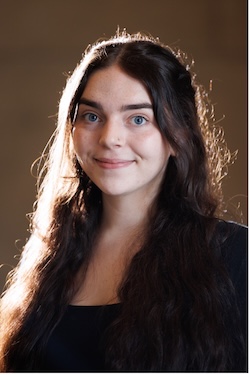
I received my Bachelor of Science degree in Cellular and Molecular Biology from Northeastern University in 2022. During my time at Northeastern, I studied cell division proteins in the multi-drug resistant Acinetobacter baumannii using CRISPR and fluorescence microscopy. After graduating, I worked as an associate scientist at Tango Therapeutics in Boston, where I identified and validated oncology targets on the immunology team.
I joined Duke’s Immunology PhD program in Fall 2023 and joined the Crosby lab in early 2024. My research interests lie at the intersection of cancer biology, immunology, and genetics, and I am excited to be pursuing this interest via the obesity and breast cancer research in our lab.
Outside of the lab, I enjoy cooking, reading, live music, and coffee!
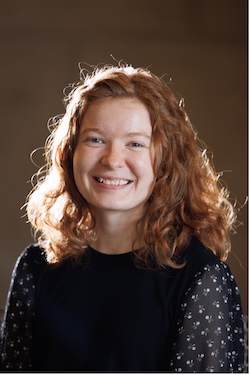
I am a PhD student in the Integrative Immunobiology department at Duke. I started at Duke in 2023 and joined the Crosby lab in early 2024. My research interest focuses on the impact of obesity on the tumor immune microenvironment and the development of metastasis.
Prior to coming to Duke, I received my Bachelor
of Science in biochemistry at Converse University in 2021. While there I worked on developing biosensors for the detection of clinically relevant biomolecules. After graduating I worked as a Postbaccalaureate Research Fellow at the NCI studying how interferon induced transmembrane proteins block mechanisms of viral entry.
Outside of the lab I love spending time with my nephews, reading, and going to concerts.
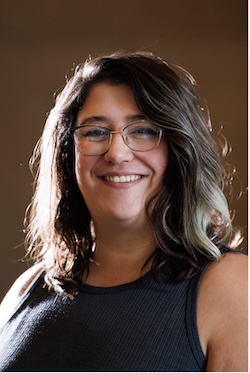
Gabby Dailey, Ph.D. – Former Postdoctoral Fellow
Scientific Consultant, Eva Garland Consulting
Funded Projects and Publications
View Dr. Crosby's funded projects and publications on her faculty profile.
Lab Highlights
- April 2025: Ryan is award the Borden Fellowship. New lab record for securing funding the fastest!
- March 2025: Jess and Abbie both pass their preliminary exams. Congratulations on becoming official PhD candidates.
- Jason accepts an offer of admission to the PhD program at the University of Washington! Congratulations, Jason. We will miss you!
- February 2025: Ryan joins the lab. Welcome to the team, Ryan!
- January 2025: Everlynn joins the lab. Welcome to the team, Everlynn!
Lab Photos
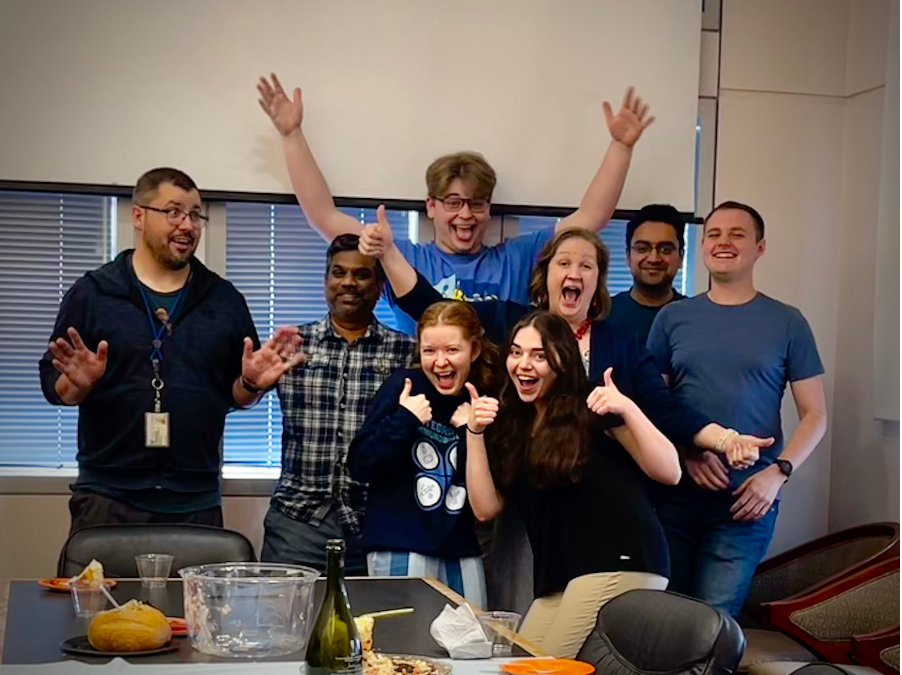

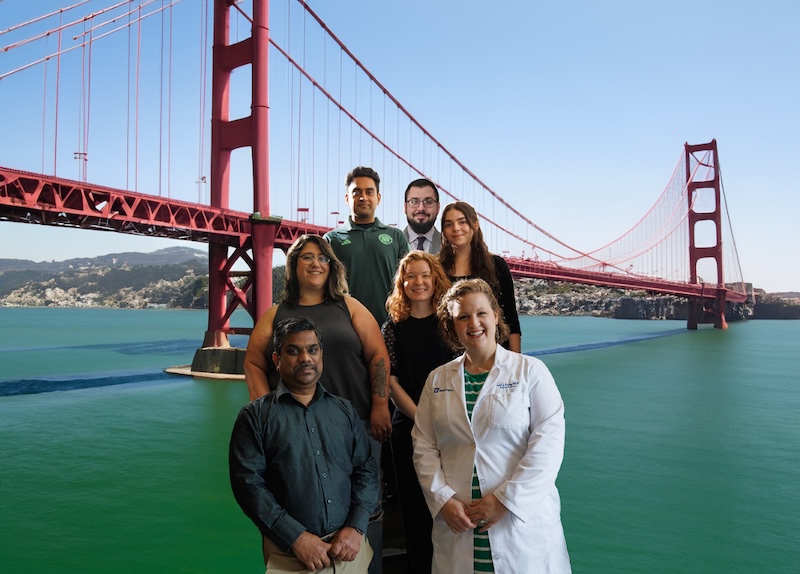
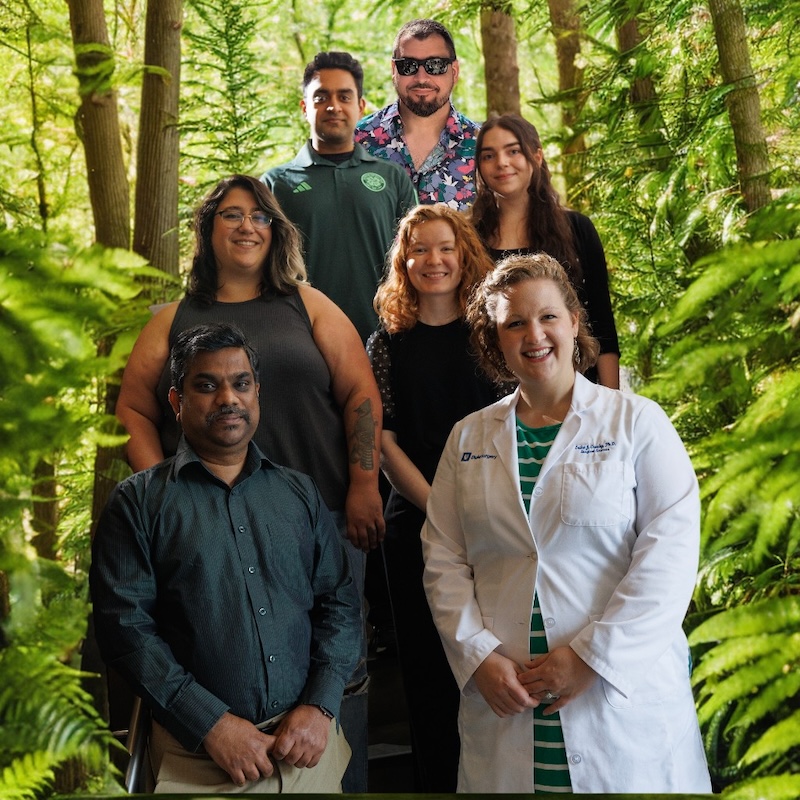
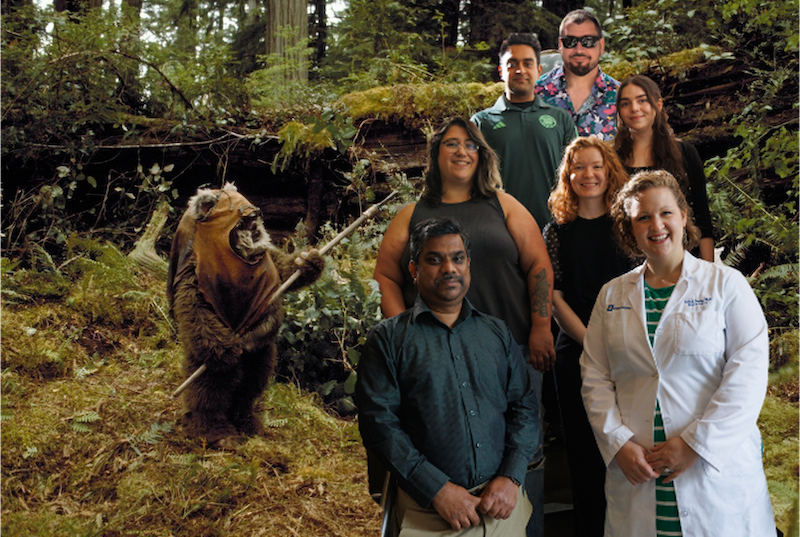
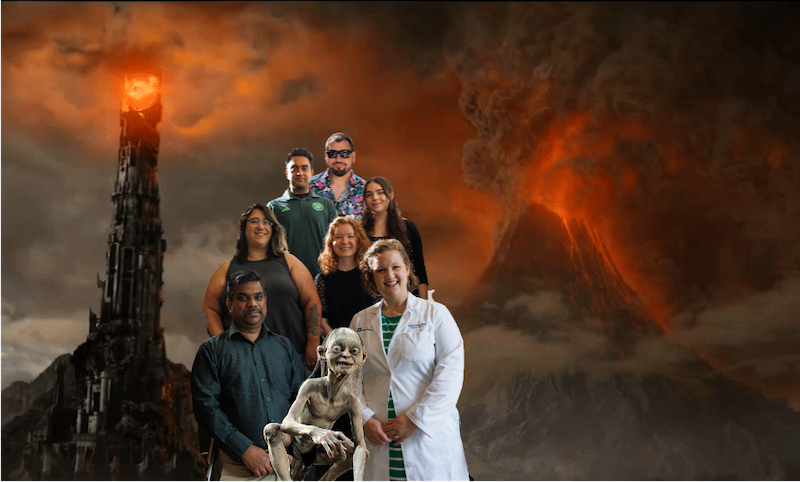
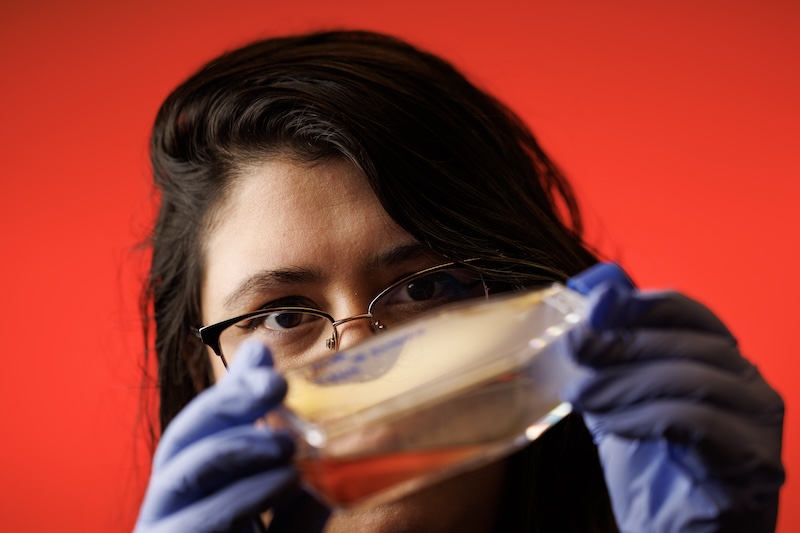
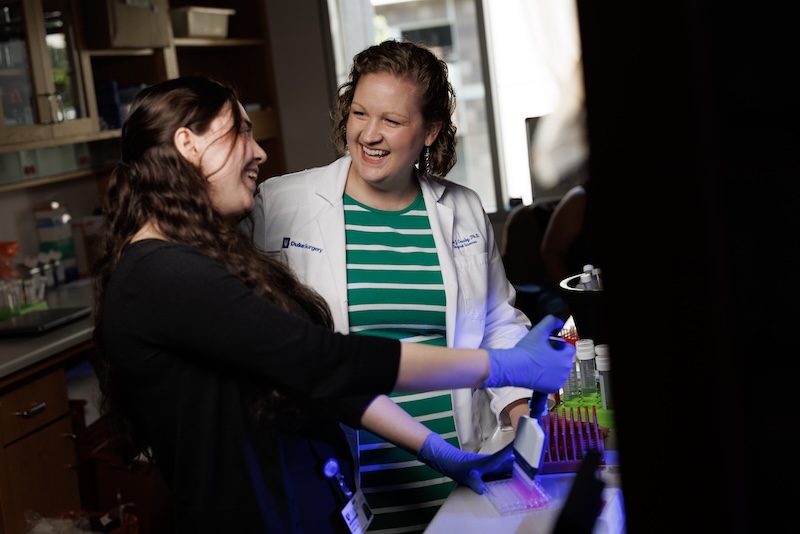
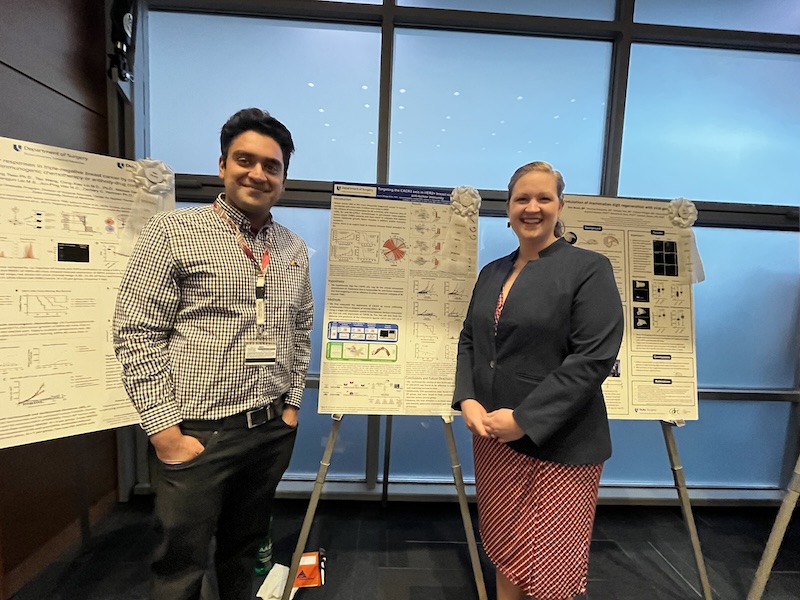
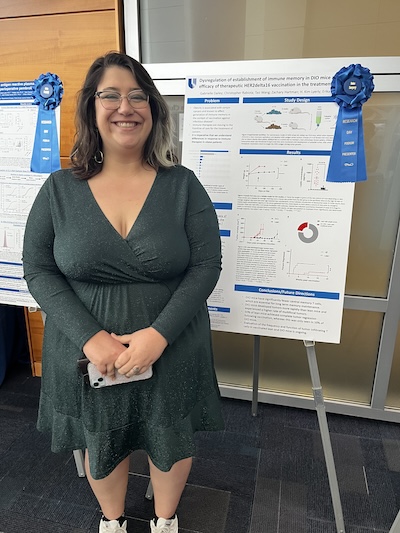
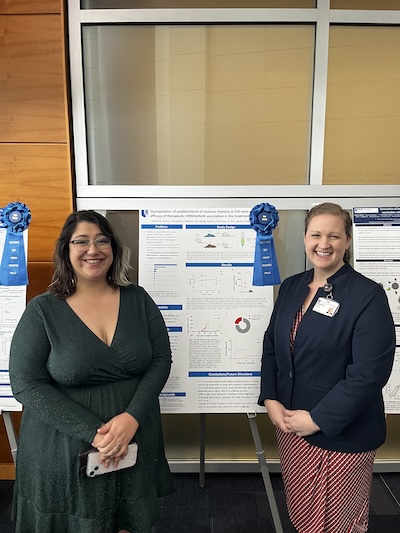
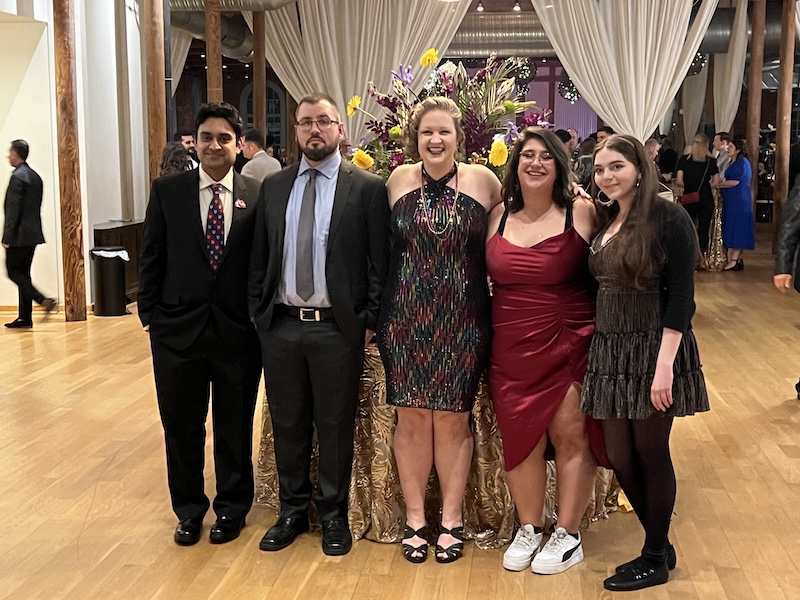
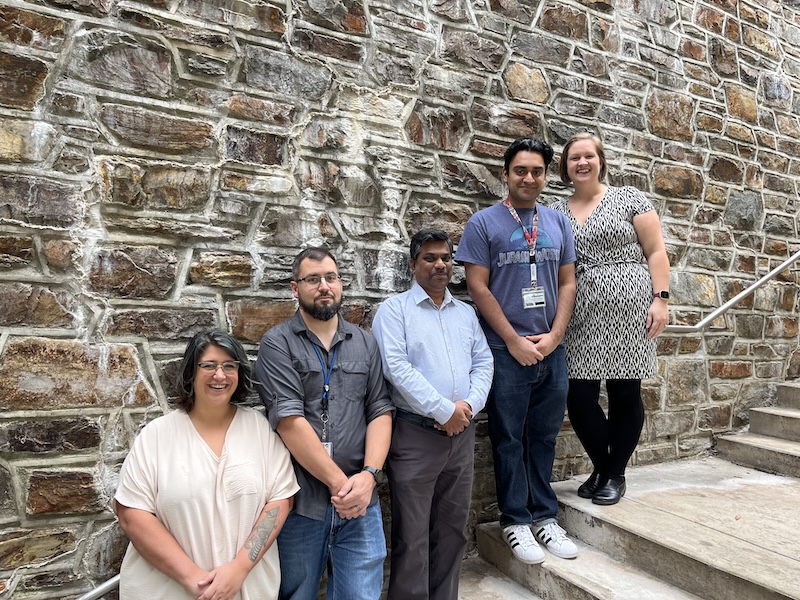
Contact Us
Are you interested in immunotherapies, metastasis, or single cell and spatial multiomics? We are always looking to grow our team, including a post-doctoral fellowship, graduate student training, technical position, or undergraduate research opportunity. Please email erika.crosby@duke.edu.
Collaborators
Are you interested in collaborating? We support team science and would love to hear about your work and how we can engage with you. Please email erika.crosby@duke.edu.